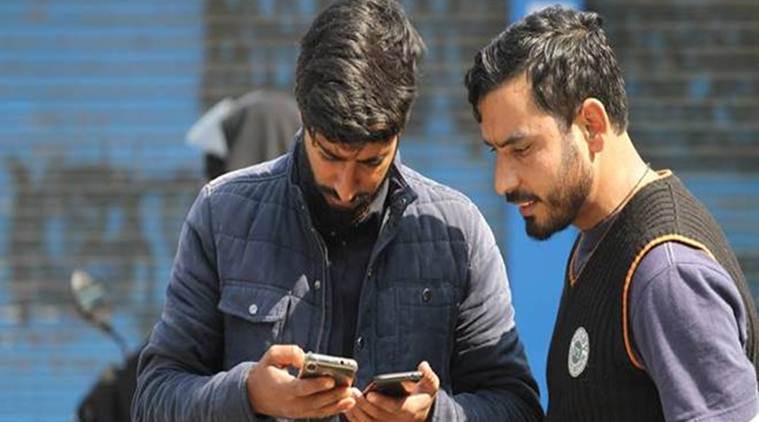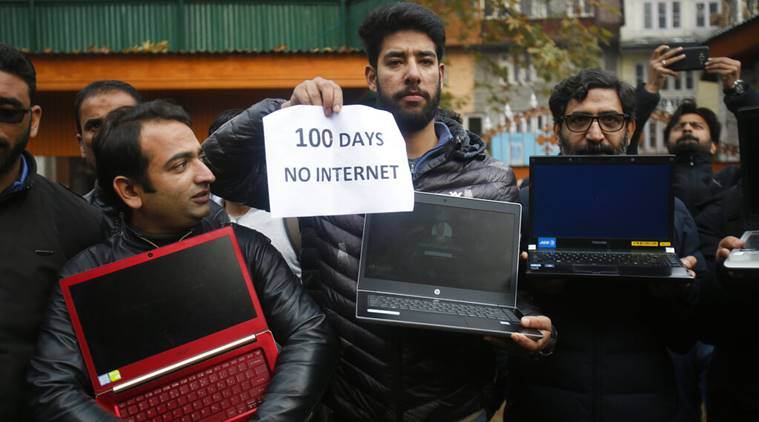 The J&K’s Home Department on January 24 had ordered the restoration of broadband and 2G mobile services in the Valley with some restrictions. (Representational Image)
The J&K’s Home Department on January 24 had ordered the restoration of broadband and 2G mobile services in the Valley with some restrictions. (Representational Image)
Seven months after Internet restrictions were imposed in the Kashmir Valley, state-run Bharat Sanchar Nigam Limited (BSNL) has restored all broadband services across the Union Territory, with effect from today (March 5). At present, around 90 per cent of the total broadband connections in the Valley are from BSNL.
The J&K’s Home Department on January 24 had ordered the restoration of broadband and 2G mobile services in the Valley with some restrictions. While 2G mobile internet services were restored a day after the order, broadband services weren’t restored.
The Kashmir Valley was put under lockdown after the Centre abrogated special status accorded to the erstwhile Jammu and Kashmir state and bifurcated it into two union territories. Since then, Internet services, landline, and mobile phones were snapped across J&K. From January, landlines, postpaid mobile services, and internet facilities to essential services like hospitals were restored in phases in Kashmir.
According to Masood Bala, BSNL PRO, “The monthly rental on account of broadband stands already waived off from August 2019 onwards.” BSNL has also appointed channel partners covering all the districts for provisioning of broadband solutions on FTTH as well as Radio and all these services are operational from today (March 5).
Earlier on Wednesday, the J&K administration removed curbs on the use of social media across the Union Territory. Mobile Internet will, however, remain restricted to 2G speed. A review is scheduled for March 17. The order, that was issued without the requisite whitelisted websites, also stated that internet access shall be available across the Union Territory of J&K with speed restricted to 2G and “these services shall not be made available on pre-paid sim cards”. Additionally, for fixed-line internet, connectivity shall continue to be made available “with mac-binding at unlimited speeds”.
What SC said on lifting restrictions in Kashmir
The easing of restrictions came after the Supreme Court, on January 10, asked the J&K administration to “review all orders suspending internet services forthwith”. Ruling that “freedom of speech and expression and the freedom to practice any profession or carry on any trade, business or occupation over the medium of Internet enjoys constitutional protection under Article 19 (1) (a) and Article 19 (1) (g)”, the Supreme Court had said that “an order suspending internet services indefinitely is impermissible”.
 The Kashmir Valley was put under lockdown after the Centre abrogated special status accorded to the erstwhile Jammu and Kashmir state and bifurcated it into two union territories.
The Kashmir Valley was put under lockdown after the Centre abrogated special status accorded to the erstwhile Jammu and Kashmir state and bifurcated it into two union territories.
The government had said, “Restriction upon such fundamental rights should be in consonance with the mandate under Article 19 (2) and (6) of the Constitution, inclusive of the test of proportionality.”
Websites added to internet whitelist
On January 18, the government had restored pre-paid cellphone service (voice and SMS) across the UT, besides 2G mobile internet connectivity to 153 white-listed sites on post-paid cellphones in all the 10 districts of Jammu and two revenue districts of Kashmir — Kupwara, and Bandipora.
On January 31, the administration increased the number of white-listed sites to 481. On February 16, more than 1,000 websites were added to the internet whitelist, taking the total number from 481 to 1,485.